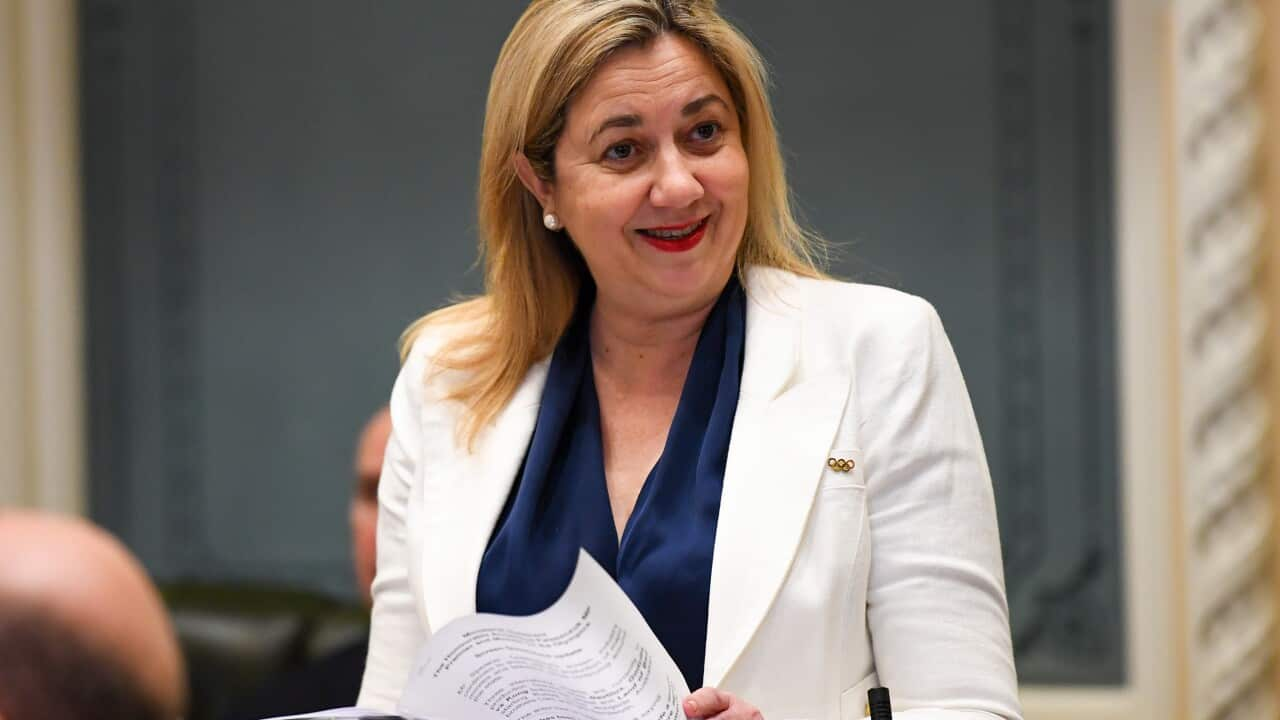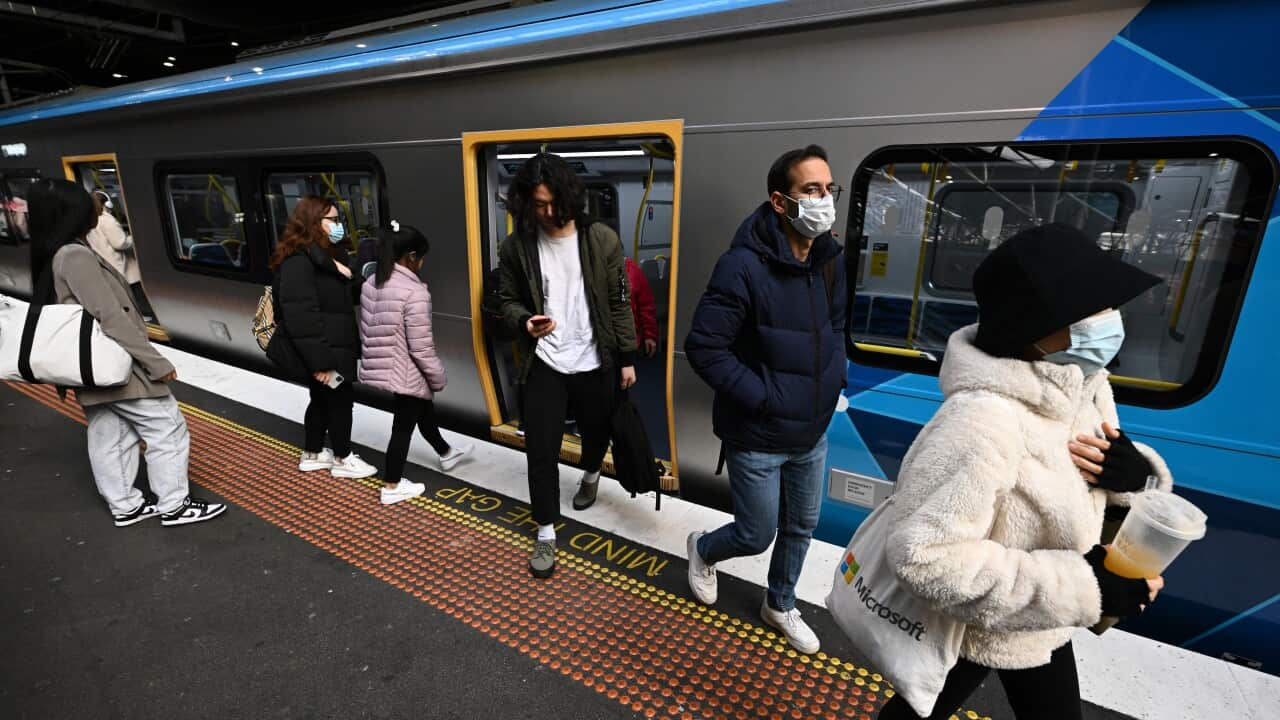Key Points
- Queensland is implementing new COVID-19 restrictions.
- Other states and territories are experiencing rising numbers.
- Some health professionals are calling for other states and territories to follow suit and also implement restrictions.
Queenslanders are being advised to wear face masks as the state enters its fourth wave of the COVID-19 pandemic.
Hospitalisations have more than doubled to 205 in the past week, while 73 people have died and 21,761 new cases have been recorded since the beginning of October.
Case numbers have increased since the weekend with the BQ.1 variant - which has swept Europe and the US - spreading in northern Brisbane and the Gold Coast.
Premier Annastacia Palaszczuk on Thursday raised the virus alert level from green to amber, which means face marks are recommended indoors when people can't socially distance, in healthcare facilities and around older or vulnerable people.
"The fourth wave that we have been expecting, now, we believe, has arrived but no one should be alarmed," she told parliament on Thursday.
"We have been living with this virus for a long time, and Queenslanders know what to do."
People are advised to take a rapid antigen test every two days if someone in their household has COVID-19.
The current wave is expected to peak within four to six weeks, with hopes it will be "short and sharp" with the worst passing before Christmas.
Queensland's vaccination rate remains at 91.5 per cent, with Health Minister Yvette D'Ath urging people to book their booster shots to better protect themselves from infection.
"We know that some of the best protection against this virus comes from ensuring that we are fully up to date with our booster doses," she told parliament.
Vulnerable Queenslanders may also be eligible to receive COVID-19 antivirals coupled with vaccination, she said.
"This provides significant protection against the virus and provides the best chance of preventing serious illness," Ms D'Ath said.
"Queenslanders have been put to the test time and time again, and each and every time, we have prevailed. I'm sure this time will be no different."
Chief Health Officer (CHO) Dr John Gerrard said the new wave was expected, and hopefully, it will peak in four to six weeks.
"We expect to see waves of this intermediate waves of this type continuing for some months or even longer," he told reporters.
"We are pretty confident that the peak of the wave will occur prior to Christmas; that's not the end of the wave but the peak of the wave.
"The shape of this particular wave is difficult to predict ... recent experience overseas has suggested that these waves, now that there was a lot of immunity in the community, might be short and sharp, and we're hoping that will be the case with this one."
The CHO's powers to order the state's borders shut, lock down cities or mandate vaccines for the general public were revoked by parliament last month.
Dr Gerrard can still legally order infected people to isolate, and close contacts to quarantine and mandate face masks and vaccination in health facilities for another 12 months.
Will other states follow?
Professor Adrian Esterman, chair of biostatistics and epidemiology at the University of South Australia, said, "this is not just a Queensland problem".
"We are seeing this new wave happening across the country," he said.
"As of last week, the effective reproduction number for Australia was 1.11, representing a 23-day doubling time for case numbers - just in time for Christmas."
Professor Esterman said other states should follow Queensland and implement restrictions.
"ATAGI is coming under increasing pressure to allow a fifth dose to vulnerable people," he said.
"The onus is now on the other states and territories to follow Queensland’s lead and upgrade their health advice, and if necessary, reimpose some public health measures, like face mask advice.
"Surely, mandating face masks on public transport is not that difficult."
The Victorian Department of Health released a video on Twitter on Thursday saying that Victoria is entering a new COVID wave.
In the video, Chief Health Officer Brett Sutton tells viewers "if you don't get COVID, you can't spread COVID".
The NSW government has also warned residents of rising COVID cases. NSW Health released a video on Twitter this week warning of changing variants in the state.
"We believe COVID cases will rise in the coming weeks," NSW Chief Health Officer Kerry Chant said.











